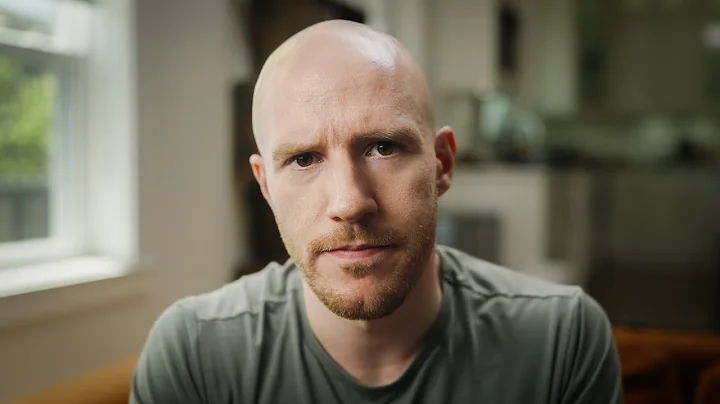"I don't want to go out, and I don't want to communicate with people. Give me a network cable and provide takeaways. I can go to the ground alone."
Have you ever heard such a voice in your heart?
does not know where to start, and the social terrorist group continues to grow. The data shows that the number of members of Douban's "I have severe social phobia group" has exceeded 30,000! !

Obviously, social fear is no longer an isolated phenomenon. In Japan, the phenomenon of social terrorism has even become the norm. It covers all age groups, and it also crosses gender. The social terror group of
students chose [not going to school] (ふとうこう)
"feeling marginalized," It’s difficult to integrate into the collective."
The social and terrorist groups who just graduated choose to be [お Zhai] or [フリーター]

from the backstage message of Japanese Story
お Zhai (おたく) is a type of person described in Chinese as "otaku otaku" These terms are actually derived from the Japanese word for "house", which shows that the phenomenon of social terrorism in Japan was born early.

There is also a group of people who choose to become fritter . After all, not everyone can squat at home with peace of mind, and they have to eat well!
Frita can be homophonically translated as "Flyers", which refers to people who are incapable of entering society, or who do not want to find a formal job at all, and rely on odd jobs to support themselves.
Finally, there are people who choose to become lifelong old clubs and fear people -

is called 引きこもり in Japanese, which consists of two parts: "引き" (Hiki) and "Cage もる" (Komoru) The composition is literally interpreted as "retirement, withdrawal" and "concealment, social retreat". The Chinese paraphrase is the hibernated tribe.
's "White Paper on Children and Youth" in 2019 announced that there are an estimated 613,000 people among the 40-64-year-old hibernating people in Japan. Among them, their highest hibernation record is as long as 15 years ...

this group of people has been scholars Called ", the missing 1 million people ", the group accounts for 1% of the total population of Japan.
They don't work, they refuse to contact people, they completely cut off contact with the outside world, and they live in a corner of the noisy city year after year. The small rooms are full of magazines, comics, and game cassettes. They usually go out once a few days, most of them late at night, in order to go to vending machines or convenience stores to supplement their basic supplies and ingredients.

"An overly complicated society is terrible. I just want to stay in my own world and live my life like this."
has been evaded like this when one person bears unspeakable pain and pressure from others. Ideas?
Today, the editor would like to recommend a book about the mood of social fears for those of you who occasionally wander on the edge of society-Aoyama Qie's "Good Weather for One" (ひとりびより)

"One Person" "Good Weather" is the winning work of the 2007 Akutagawa Award. The
Akutagawa Prize is generally aimed at encouraging newcomers and writers, and prefers to listen to the voices of the younger generation. The writer Qie Aoyama became the third young female winner in the history of the award at the age of 23 with "Good Weather for One".
Who is she speaking for?
"A Man's Good Weather" is also called "Flyer's Confession" . In an interview with

, Qihui Aoyama introduced: when she wrote "One’s Good Weather", she had just graduated from college and started working. This year was a somewhat contradictory and cruel day for all young people who had just graduated. , They are all adapted to become social people.
lost the asylum of home and school, and for the first time faced the pressure of finding a job, the pressure of living in the city, and the pressure of dealing with strangers frequently... Many young people were squeezed by these pressures and felt at a loss.

It's too difficult to find and engage in a formal job. Why don't you just rely on simple part-time jobs to make a living?
According to Japanese official statistics, 15 to 34 years oldThe number of short-term employees reached 214,000 between 1996 and 2004. The survey also shows that odd jobs have unstable incomes, and the chances of getting married and having children are greatly reduced. This is a big warning sign for Japan, which has a serious declining birth rate.
stepped from the atmosphere of a university to a cruel society, and his unwilling mentality led Qihui Aoyama to create this work.
has the psychology of saying goodbye to her in the past, wants to use "A Man’s Good Weather" to tell young people who are afraid of entering society like she used to be. In fact, entering society is not a terrible thing. . The novel
is only a thin one, with only more than 50,000 words. The whole book consists of five chapters: "Spring, Summer, Autumn, Winter, Welcome to Spring". According to the sequence of the seasons, the changes in the protagonist’s mood are depicted through the passage of time. The protagonist of the
story is called Zhishou, who is also a Freeter. After graduating from high school, she didn't want to go to school, but just wanted to spend her days working. For her, the only goal in life was to live her life. She has only one simple request for herself, which is to save one million yen (about 60,000 yuan).
So she came to Tokyo alone to join a distant relative, an old lady Ginko who had been widowed for many years. They spent a quiet year together. Although there were no major incidents, the psychology of Zhishou was also quietly changing.
"I really want to cut off all connections, go to a place where there is no one, nothing, and start from scratch. However, new relationships will be established there." Z2z
, who first arrived in Tokyo, is very lonely, and there is no such thing as her. Family, she didn't make new friends either. When spring was about to pass, she broke up with her boyfriend. The loss of love did not make her very painful, she did not even cry.

There is a word in Japanese called 還 (きずな) , which describes the emotional connection between people.
Zhishou maintains an indifferent attitude towards the breaking of trips. Rather than establishing contact, she prefers to have no contact with the outside world.
She asked Yinzi, "The outside world is cruel. People like me will soon fall?" With the wisdom brought by time, the older Yinzi
told her , "There is only one world inside and outside." When did
start to isolate ourselves from the outside world?
When the hot summer arrived, Zhishou began to try a new relationship. She was serious this time, but her boyfriend left her along with the summer. This time she was very sad, and asked Yinko "Why is my love always lasting?"
Yinzi just comforted her: "It's great to talk about love while young." When
arrived in winter, her mother suddenly came to tell her , She is going to marry away and go to China. Although Zhishou often rejects her mother's concern and always feels that her mother is nagging, she still feels very reluctant.
She did not show the sentiment of parting, but uncharacteristically expressed that she wanted to learn languages with her mother's Chinese stepdaughter.
boyfriend is gone, mother is also leaving, Zhishou seems to be really alone.
"The fate with other people is so unreliable. I don’t seem to be able to connect other people and myself closely. I also want to try to live by myself. I hope that once again, it’s not that others leave me, but that I'm leaving others. It's time to leave this home."
At this time, Zhishou made an important decision. She planned to enter the society alone and no longer rely on anyone's protection. The last chapter of
's novel is called "Welcome Spring". Zhishou quit her part-time job and began to become a full-time employee of a company. She moved out of Ginko's house and truly began her life as a person. At the end of the novel

, the scene is set on a tram. The tram takes Zhishou to a new life, meet new people, and get in touch with new things.
She began to realize that maybe it's not scary to walk into society. Even if
has to go through many partings, and then be alone, you can have your own good weather even if you don't lock yourself up.
is like when Qie Aoyama encouraged Frederick, "As long as we are willing to take the first step, there will be a way out."
We still have to take that step, and then we will continue our lives steadily.

and above です.
if you like oursWorks, please continue to pay attention to Japanese Monogatari, and move your little hand to star us, and the "Looking at" in the lower right corner of the article!
The following is how to add stars. I would like to thank you readers here. We need your support. Your support is our driving force!



![On Writing: Subtext (and how to use it)! [ Tarantino | Thrones | Gatsby ] - DayDayNews](https://i.ytimg.com/vi/58FyvzttlIg/hq720.jpg?sqp=-oaymwEcCNAFEJQDSFXyq4qpAw4IARUAAIhCGAFwAcABBg==&rs=AOn4CLBfOGnWnraSxYimgs9dAYyEcjATVg)







